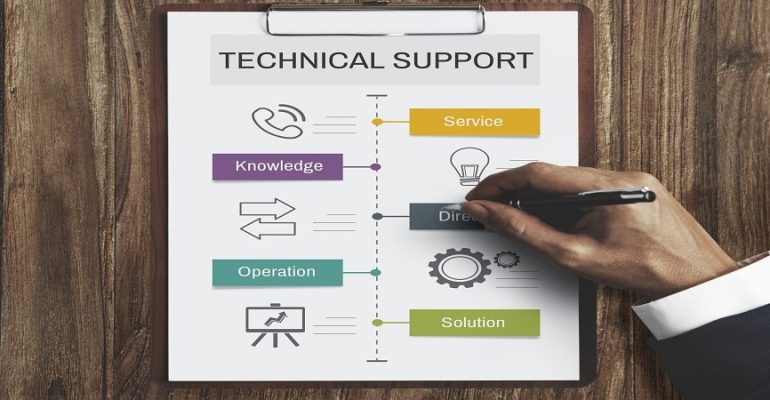
Comprehensive Support Solutions Empowering Business Success

Comprehensive Support Solutions Empowering Business Success
In today’s fast-paced digital world, robust support services are more critical than ever. As businesses increasingly rely on technology to drive operations, comprehensive support spanning technical support, desktop support, application support, and customer support \has become essential. This blog delves into how these support services can empower your business, ensuring seamless operations and enhanced customer satisfaction.
Technical Support: The Backbone of Modern Enterprises
Technical support is the cornerstone of any IT-driven business. It ensures that all technological components function optimally, minimizing downtime and maximizing productivity. High-quality technical support provides businesses with the following advantages:
24/7 Availability:
Round-the-clock support ensures that any kind of technical issues are promptly addressed, preventing prolonged disruptions.
Expert Troubleshooting:
Skilled technicians diagnose and resolve complex technical problems, ensuring smooth operations.
Preventative Maintenance:
Regular system checks and updates prevent potential issues, maintaining system integrity and performance.
Desktop Support: Enhancing User Efficiency
Improving client proficiency Desktop Support focuses on settling issues related to individual workstations. It’s crucial for maintaining employee productivity and satisfaction. Key benefits of robust desktop support include:
Quick Issue Resolution:
Fast response times for common issues like software glitches and hardware malfunctions.
User Training and Assistance:
Providing users with the knowledge to troubleshoot minor issues and use software effectively.
Remote Support Capabilities:
Utilizing remote desktop support tools to resolve issues without the need for on-site visits.
Application Support: Ensuring Seamless Software Performance
Application support ensures that software applications run smoothly, which is vital for business operations that depend on specialized software. Essential aspects of application support include:
Software Updates and Patching:
Keeping applications up to date with the latest features and security enhancements.
User Support and Training:
Helping users understand and utilize software applications effectively.
Performance Monitoring:
Regular monitoring to ensure applications perform optimally and identifying potential issues before they escalate.
Customer Support: Building Strong Relationships
Customer support is at the heart of customer experience, playing a pivotal role in building and maintaining customer relationships. Excellent customer support can lead to increased customer loyalty and brand reputation. Key elements of effective customer support include:
1. Multi-Channel Support: Providing support through various channels—phone, email, live chat, and social media.
2. Personalized Service: Understanding and addressing individual customer needs to provide tailored solutions.
3. Feedback and Improvement: Gathering customer feedback to continuously improve products and services.
Integrating Support Services for Optimal Efficiency
Integrating technical, desktop, application, and customer support creates a comprehensive support system that covers all aspects of business operations. This integrated approach offers several benefits:
Streamlined Processes:
A unified support system ensures that all support activities are coordinated, reducing response times and improving efficiency.
Consistent Communication:
Ensuring all support teams communicate effectively to provide cohesive support.
Holistic Problem Solving:
Addressing issues from multiple angles ensures comprehensive solutions that prevent recurrence.
Future Trends in Support Services
As technology evolves, so do support services. Future trends to watch include:
AI and Automation:
Leveraging AI for automated support, predictive maintenance, and enhanced customer interactions.
Remote and Hybrid Work Support:
Developing support systems tailored to remote and hybrid work environments.
Proactive Support:
Shifting from reactive to proactive support, using data analytics to predict and address issues before they impact users.
Conclusion
Incorporating robust support services into your business strategy is crucial for maintaining operational efficiency and ensuring customer satisfaction. By understanding and integrating a good support team, businesses can navigate the complexities of modern technology with confidence.
Stay ahead of the curve by embracing the latest trends and continuously improving your support systems, empowering your business for success in the digital age.
